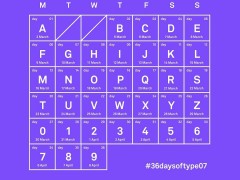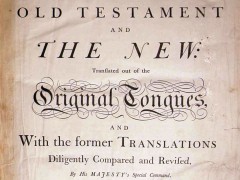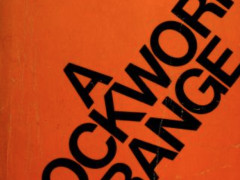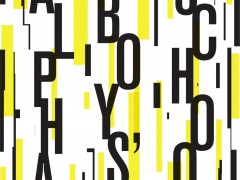Mexico City: Colectiva SJF's typographic memorial against femicide on IWD2020
"Adriana. Dulce. Paola. Nayeli. Ingrid. Maria — lots of Marias. These are just some of the names of the thousands of women killed each year in Mexico, often by their intimate partners" reports the Associated Press on the typographic protest against the country's gender violence records.
Last Sunday, on International Women’s Day ten members oof the activist art collective, Colectiva SJF, carpeted Mexico City’s central Zocalo square with victim’s names in big, bold, white block letters for everyone to remember.
The artivistic protest against gender violence saw the city's plaza painted with the named victims of femicide in Mexico from the past four years.
"Over the course of the next six hours, over 200 other women would join them in painting about 250 names, 'which was as many as we had time to paint before the march,' Martha Muñoz Aristizabal, a member of the collective, told Hyperallergic. The anti-femicide march for International Women's Day, from the Monumento de la Revolución to the Zocalo drew, according to different estimates, between 80,000 and 150,000 people" reports Hyperallergic.
— Santiago Arau (@Santiago_Arau) March 8, 2020
"We were sick of seeing the femicide problem through statistics. We wanted to humanize these women. When they die, they leave an imprint on all of us and we wanted to visualize that imprint for everyone, to create a collective memory," Muñoz explained.
"It is a necessity of social protest to occupy public spaces and resignify them. But the most beautiful part was that the process was a collective action. That also left its own mark on us."
An average of more than 10 women slain each day in Mexico, making it one of the most dangerous countries in the world for females while thousands more have gone missing without a trace in recent years.
Icónico cabello de @DeniseDresserG, icönica estrategia de escribir en la plancha del Zócalo
— Cayo J.C. (@Arrius_JC) March 8, 2020
(Sr @Santiago_Arau vaya al Zócalo! Tomas de los nombres llenando la plaza, luego mujeres abarrotanola) #8M2020 pic.twitter.com/YGvP2y1fat
Ayer #8M2020 fue el #DiaInternacionalDeLaMujer y en Plaza del Zócalo, Ciudad de Mexico, se hizo una intervención registrando los nombres de las mujeres asesinadas, más de 3.000 victimas de femicidio. #NiUnaMenos #FelizLunes #9M2020 pic.twitter.com/ZEOxnDLF8x
— Neu Design (@neudesigncl) March 9, 2020
"We decided it was a moment to put them into numbers — all those women who are missing, who they’ve taken from us," said Sofia De Robina, a lawyer with the Miguel Agustin Pro Human Rights Center to AP.
"De Robina, together with friends and activists, compiled a list of names of women who have been killed in Mexico since since 2016. The idea was to put those names on the asphalt as a memorial, but also to give them a voice in the day’s protest."
Decenas de mujeres cubrieron el 8 de marzo la plaza central del Zócalo de la Ciudad de #México con los nombres de las víctimas en letras blancas, parte de las protestas contra la violencia de género en el Día Internacional de la Mujer. Fuente: AP pic.twitter.com/5YKqD8tIY7
— CGTN en Español (@cgtnenespanol) March 10, 2020
The names were scrubbed the next day, during a national women’s strike in Mexico.
Mexico's government data shows that 3,825 women met violent deaths last year, 7% more than in 2018.
In 2019, 10 women were murdered every day in Mexico, according to government statistics.
Nombremos a las que nos arrebataron”, fue la frase que el colectivo feminista #SJF utilizó para convocar a mujeres voluntarias a sumarse a esta acción. Participaron más de cien mujeres, una pieza colectiva que vivirá en nuestra memoria junto con las desaparecidas. #NiunaMenos pic.twitter.com/F2ZmytXAcL
— Gina Jaramillo (@ginjaramillo) March 11, 2020
According to El Economista, if you compare femicide from 2015 and 2019, there was a 136.1% increase.
Femicide should be erased, the victim's names should be remembered, and this typographic memorial is an evidence for truth.
Tags/ typography, activism, memorial, artivism, gender violence, mexico




















